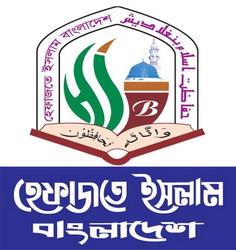Hefazat-e-Islam Gears Up for Major Dhaka Rally Highlighting Four Core Demands
Hefazat-e-Islam, a prominent Islamist organization in Bangladesh, is organizing a large-scale demonstration in Dhaka this Saturday to press for four pivotal demands they believe are essential to safeguarding the interests of the Muslim community nationwide. This event arrives amid ongoing national debates concerning religious liberties, educational policy reforms, and government regulations affecting faith-based groups. The rally is expected to attract widespread attention as it seeks to consolidate support and bring these issues into sharper focus for both policymakers and the general public.
Core Demands and Nationwide Mobilization Efforts
The group has outlined four principal demands that will form the backbone of their protest: ensuring protection of Islamic values within society, advocating for enhanced Islamic education systems, resisting what they perceive as excessive foreign interference in domestic affairs, and urging stricter implementation of Sharia principles within governance frameworks. These points reflect Hefazat’s broader vision for reinforcing religious identity alongside national development.
In preparation for this significant gathering, Hefazat’s leadership has been actively coordinating with regional branches across Bangladesh to galvanize grassroots participation. Their strategy includes community engagement initiatives aimed at raising awareness about the rally’s objectives while emphasizing solidarity among supporters. Additionally, Hefazat has called upon government authorities to respect citizens’ democratic rights by allowing peaceful assembly without undue restrictions.
National Impact and Security Considerations Surrounding the Rally
The forthcoming demonstration holds considerable implications not only for public discourse but also regarding security management throughout Bangladesh’s capital. By spotlighting their four-point agenda, Hefazat may intensify existing societal divisions related to religion’s role in state affairs versus secular governance models—a debate that continues to shape political narratives across South Asia.
From a security standpoint, law enforcement agencies face complex challenges in balancing crowd control with upholding civil liberties during such high-profile events. Anticipating large crowds potentially numbering in the tens of thousands—similar in scale to previous mass mobilizations—the authorities are expected to deploy additional personnel strategically throughout key locations. Measures could include establishing checkpoints near sensitive zones and imposing temporary restrictions on movement or assembly where necessary.[1]
The manner in which these security protocols are executed may set important precedents influencing future demonstrations nationwide—affecting how protests intersect with state policies on freedom of expression and public order maintenance.
Strategies for Government Engagement: Navigating Dialogue with Hefazat Leadership
The rally underscores an urgent need for proactive governmental engagement aimed at addressing Hefazat’s concerns through constructive dialogue rather than confrontation alone. Given that their demands touch upon sensitive areas such as religious freedoms and educational content reform—which affect millions—the administration would benefit from adopting inclusive approaches fostering mutual understanding.
- Create Inclusive Task Forces: Establish committees comprising religious scholars, educators from diverse backgrounds, civil society actors, and policymakers dedicated specifically to discussing these issues comprehensively.
- Enhance Community-Level Outreach: Implement programs targeting regions where Hefazat wields substantial influence; these initiatives should aim at clarifying misconceptions while acknowledging legitimate grievances.
- Institutionalize Regular Consultations: Schedule ongoing meetings between government representatives and group leaders ensuring transparency about progress made toward resolving outstanding matters.
- Pursue Balanced Educational Reforms: Develop curricula integrating Islamic studies alongside secular subjects harmoniously—reflective of Bangladesh’s pluralistic heritage yet respectful toward cultural sensitivities.
| Main Demand | Sensible Government Response Options |
|---|---|
| Safeguarding Religious Freedom | Create platforms facilitating open discussions between policymakers & faith leaders clarifying legal protections available under constitutional guarantees. |
| Madrasa Development Support | Introduce funding schemes enhancing infrastructure & teacher training within madrasa institutions aligned with national education standards without compromising religious teachings. |
| Cultivation of Islamic Values Within Governance | Pursue policy adjustments incorporating ethical principles inspired by Islam into social welfare programs respecting pluralism. |
| Youth Employment Opportunities | Diversify job creation efforts focusing on sectors appealing particularly to young Muslims including halal industries & entrepreneurship incentives. |
Concluding Perspectives: The Rally’s Role Amidst Bangladesh’s Socio-Political Landscape
This weekend’s planned demonstration by Hefazat-e-Islam represents more than just a protest—it symbolizes an ongoing negotiation over identity politics within Bangladesh’s evolving democracy. While rooted firmly in advocating specific ideological positions tied closely with Islamism, the event also serves as a catalyst prompting wider conversations around coexistence between secular governance structures and faith-based communities striving for recognition.[2]
The outcome will likely resonate beyond immediate political circles affecting social cohesion dynamics nationally—and possibly influencing legislative approaches towards managing similar movements going forward. As observers watch closely how both organizers’ intentions unfold alongside governmental responses,, a balanced approach prioritizing dialogue over discord remains crucial.
